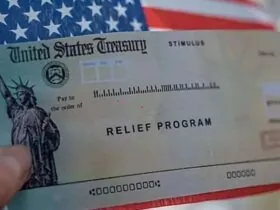In recent years, federal stimulus programs have provided crucial relief to low-income households, helping many families navigate financial challenges. The support that emerged during the pandemic continues in various forms, with new initiatives like the Sacramento Family First Economic Support Program (FFESP) offering much-needed assistance to those in need. Launched in late 2024, the program aims to address economic inequality and enhance the well-being of children in eligible families, offering guaranteed financial support to those who need it most.
What is the Sacramento Family First Economic Support Program?
This Article Includes
The Sacramento Family First Economic Support Program (FFESP) is a pilot initiative designed to provide financial assistance to families in California. At its core, the program seeks to reduce economic disparities and improve the quality of life for children by offering direct payments to low-income households.
The program was specifically created to support African American, American Indian, and Native American families, particularly those with children between the ages of 0 and 5. By focusing on these communities, FFESP strives to address systemic inequities and provide resources for families who have long faced financial challenges.
The purpose of the Sacramento County District Attorney's X page is to keep the public informed about what the office is doing both in the courtroom and in the community, provide the latest office news and information about programs and events/activities.https://t.co/Zgrm7SyoBO pic.twitter.com/3TSdBD12n7
— Sacramento County DA (@SacCountyDA) October 2, 2024
Monthly Direct Payments to Eligible Families
One of the key components of the Sacramento Family First program is the guaranteed monthly direct payment of $725. This payment is intended to assist families with covering everyday expenses, childcare, and other essential needs. The program was initially rolled out as a trial, selecting 200 families to participate, and the goal is to provide long-term relief through a steady income stream for one year.
These payments are aimed at parents or legal guardians who meet specific eligibility criteria, including income requirements and residency in California. Participants will receive these payments monthly, starting from December 2024, and continuing through November 2025.
Eligibility Criteria for the Program
To qualify for the Sacramento Family First Economic Support Program, families must meet certain requirements. The program specifically targets households with children who are between 0 and 5 years old and who belong to African American, American Indian, or Native American communities.
Income levels are also an important factor in determining eligibility. Families must demonstrate that they meet the income guidelines set by the program, which are designed to assist those who are most in need. Additionally, participants must have a verifiable residence in California.
If a family moves out of the state or no longer meets the program’s eligibility criteria during the year, their payments may be suspended. However, as long as the criteria are met, families can continue to receive their monthly payments until the program concludes.
January 2025 Payment Details
For families enrolled in the Sacramento Family First program, the first payment of 2025 will be made on Wednesday, January 15. This payment will be deposited directly into the bank accounts linked to the participants’ tax returns. If a participant does not have a bank account linked, they will receive their payment via physical check sent to the registered address.
The payment schedule will continue monthly throughout the year, providing a steady flow of support to those families who qualify. The goal of the program is to ease the financial strain on low-income families, enabling them to focus on providing for their children and improving their quality of life.
Conclusion
The Sacramento Family First Economic Support Program represents a significant step toward addressing economic inequality in California. By providing a guaranteed income stream for families, the program offers hope and relief to those who are most in need, particularly in African American, American Indian, and Native American communities.
With the first payment of 2025 arriving on January 15, the Sacramento Family First program is a lifeline for families with young children, and it stands as an important model for other communities seeking to reduce financial disparities and support their most vulnerable residents.







Leave a Reply